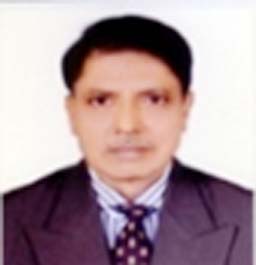Dr. Forqan Uddin Ahmed :
Former Bangladesh Bank governor Dr. Mohammad Farashuddin has unveiled some truths about the country’s banking sector where regulations have remarkably been relaxed in recent years. Seldom have we seen such blistering comments coming from a governor in Bangladesh’s history.
Farashuddin’s statement, though commendable at a critical moment, creates enormous doubt over whether the government will really pay any attention to it. The doubt is genuine because the looters are quite well-known to all of us, and they are flocking around the people in power.
Not only have they indulged in misdeeds, but they are extravagantly empowered with high positions as well. To the bad luck of the nation, these people have been masquerading as the “true saviors” of the financial industry, if not that of the whole nation.
These wolves in sheep’s clothing, if not checked, will bring an economy of otherwise high potential down. The truth hidden under his humor points out that if high-scale bank looters are pardoned so easily, the banking sector’s future must be cancerous, suggesting the emergence of further plunderers under the political coddling of the regime.
His warning rightly echoes that of Dr. Wahiduddin Mahmud, former economic adviser to the caretaker government, who allegorically labels the default culture as the rotten heart of the nation.
The bank owner’s association’s some recent decision regarding dollar rate and its other activities made the role and the responsibilities of Bangladesh Bank a very questionable matter. Amidst the clumsy situation the central bank has undoubtedly fallen to controversies.
This is indeed concerning for nation.Previously government exclusively played the role to control market economy. The objective was to encourage competition, control monopoly marketing and to ensure public consumers and investor’s interest. Somehow, for various reasons, its performance is not found smooth and satisfactory.
Later on, the regulatory bodies like central bank, energy regulatory commission were set up for banking and energy sectors respectively. It is observed that these bodies also turned to non-effective. These bodies also fail to discharge their statutory responsibilities.
It is noted that the bank owners are influencing finance ministry, central bank and even the parliament also.
There is no major corruption in the country in which banks are not directly or indirectly involved.
The problem is particularly acute in state-owned banks. The board of directors will give general instructions for the operation of the bank, make decisions on policy matters and the people engaged in bank management will implement the policy, this is the rule.
The scope of work of the board of directors and bank management is determined by law. But it is often complained that the Board of Directors interferes in the management of the bank.
Now it can be seen that the board of directors of the bank is more interested in interfering in the day-to-day operations of the bank than making policy decisions. As a result, it is not possible for bank managers to use creativity independently.
They are often forced to act according to the directives of the board of directors. This is not auspicious for the banking sector at all. However, bank management is not always efficient. Many times problems also arise due to inefficiency and mistakes in management.
Good governance of the banking sector is meant to manage the resources of the country by maintaining relations with the government institutions and the people of the country.
According to the definition of the International Monetary Fund (IMF), transparency is the phenomena in which all information related to currency and monetary policy is communicated to the public in a timely manner.
In the current context of crisis in the country’s banking sector, the term good governance has now become an important topic of discussion to revive public and private responsibility, especially for transparency and accountability in banking activities.
The central bank is supposed to control banking sectors and fix up the monetary policy. But we see the different picture.The central bank has become a puppet or a rubber stamp. In our country, there are regulatory bodies but they cannot perform the duty with freedom.
Either the appointed chief is biased and manipulates things along with the vicious circle. They are given the authority but they cannot exercise it properly; for they are weak and waste warmly by the interested groups.
Their mindset is made in a negative way. In this case, the mindset of the head of government and firmness of finance minister matter to stop the financial irregularities.
In banking sectors for its smooth functioning, they should have the provision of timely auditing, supervision and monitoring. And it should be very much continuous.
The bank officials must be progressive and effective with qualities of good servicing, personal behave, attitude, honesty, sincerity and good understanding with their clients. Once faith is established and good professionalism is developed bank will run with honor and dignity.
The following recommendations may be noted and taken into account. Full control of different banks (private and public) must be ensured by government in a strong way.
Tenure of the directors must not linger for a long time. MD’s appointment should not come from the outside. Again, it should not be contract based. Appointment should come from line banks.
Board of the banks should be reconstructed and reorganized. Normally, the old loans are not well looked into. So, measures of loan recovery must be started form the old enrollment register.
Just as the people engaged in law and order in the country can eliminate most of the crimes, the regulatory institutions can prevent almost all major corruption incidents in the country by establishing good governance in the banking sector. It is possible to overcome the economic crisis of the country by ensuring good governance in the banking sector.
(The writer is former Deputy Director General, Bangladesh Ansar and VDP).




